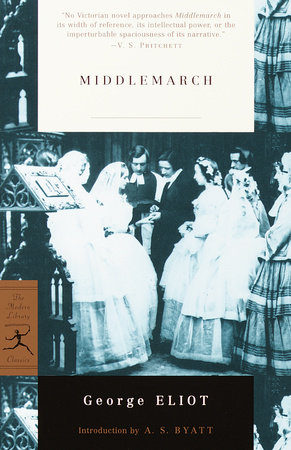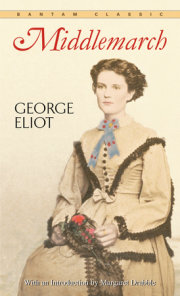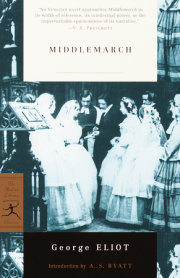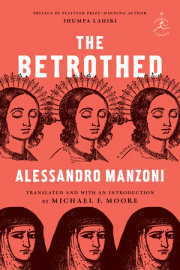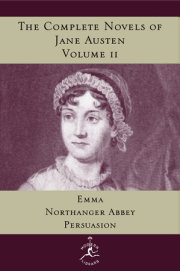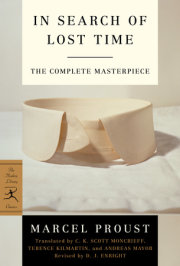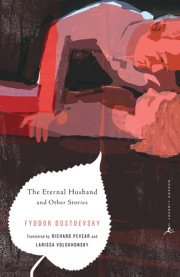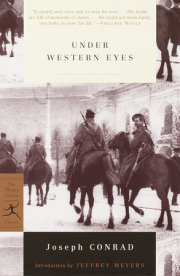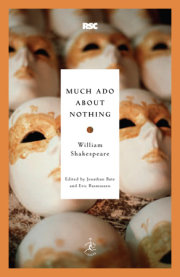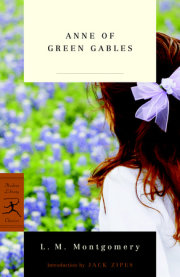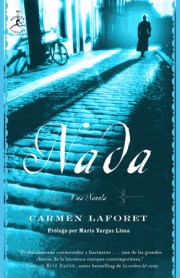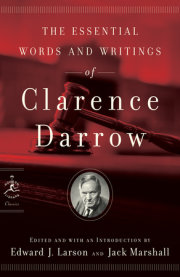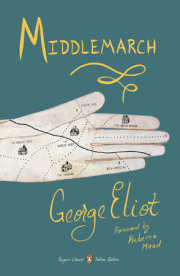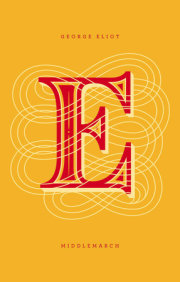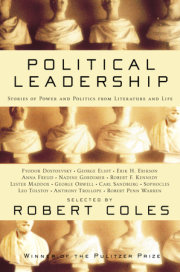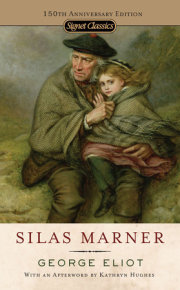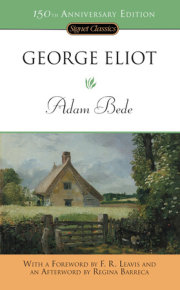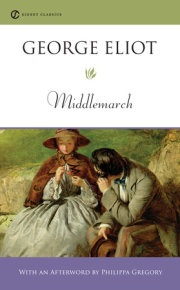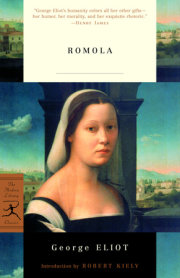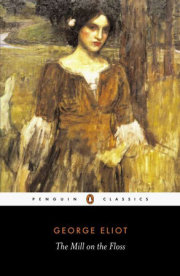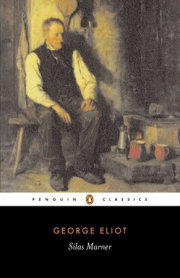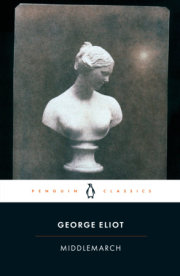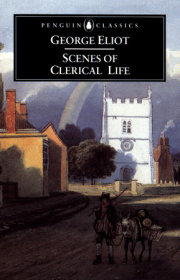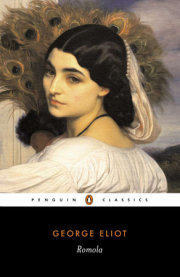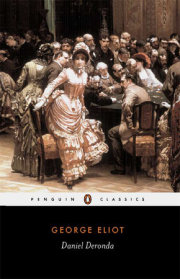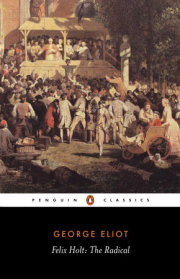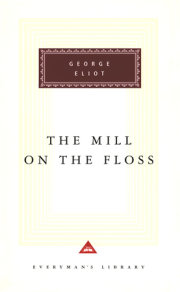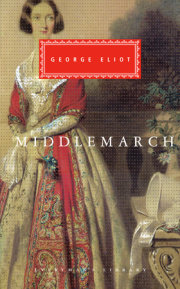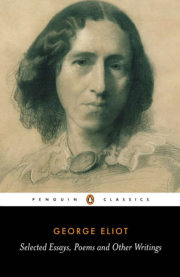Since I can do no good because a woman,
Reach constantly at something that is near it.
Beaumont and Fletcher: THE MAID'S TRAGEDY
MISS BROOKE had that kind of beauty which seems to be thrown into relief by poor dress. Her hand and wrist were so finely formed that she could wear sleeves not less bare of style than those in which the Blessed Virgin appeared to Italian painters; and her profile as well as her stature and bearing seemed to gain the more dignity from her plain garments, which by the side of provincial fashion gave her the impressiveness of a fine quotation from the Bible,--or from one of our elder poets,--in a paragraph of to-day's newspaper. She was usually spoken of as being remarkably clever, but with the addition that her sister Celia had more common-sense. Nevertheless, Celia wore scarcely more trimmings; and it was only to close observers that her dress differed from her sister's, and had a shade of coquetry in its arrangements; for Miss Brooke's plain dressing was due to mixed conditions, in most of which her sister shared. The pride of being ladies had something to do with it: the Brooke connections, though not exactly aristocratic, were unquestionably 'good': if you inquired backward for a generation or two, you would not find any yard-measuring or parcel-tying forefathers--anything lower than an admiral or a clergyman; and there was even an ancestor discernible as a Puritan gentleman who served under Cromwell, but afterwards conformed, and managed to come out of all political troubles as the proprietor of a respectable family estate. Young women of such birth, living in a quiet country-house, and attending a village church hardly larger than a parlour, naturally regarded frippery as the ambition of a huckster's daughter. Then there was well-bred economy, which in those days made show in dress the first item to be deducted from, when any margin was required for expenses more distinctive of rank. Such reasons would have been enough to account for plain dress, quite apart from religious feeling; but in Miss Brooke's case, religion alone would have determined it; and Celia mildly acquiesced in all her sister's sentiments, only infusing them with that common-sense which is able to accept momentous doctrines without any eccentric agitation. Dorothea knew many passages of Pascal's
Pensees and of Jeremy Taylor by heart; and to her the destinies of mankind, seen by the light of Christianity, made the solicitudes of feminine fashion appear an occupation for Bedlam. She could not reconcile the anxieties of a spiritual life involving eternal consequences, with a keen interest in guimp and artificial protrusions of drapery. Her mind was theoretic, and yearned by its nature after some lofty conception of the world which might frankly include the parish of Tipton and her own rule of conduct there; she was enamoured of intensity and greatness, and rash in embracing whatever seemed to her to have those aspects; likely to seek martyrdom, to make retractions, and then to incur martyrdom after all in a quarter where she had not sought it. Certainly such elements in the character of a marriageable girl tended to interfere with her lot, and hinder it from being decided according to custom, by good looks, vanity, and merely canine affection. With all this, she, the elder of the sisters, was not yet twenty, and they had both been educated, since they were about twelve years old and had lost their parents, on plans at once narrow and promiscuous, first in an English family and afterwards in a Swiss family at Lausanne, their bachelor uncle and guardian trying in this way to remedy the disadvantages of their orphaned condition.
It was hardly a year since they had come to live at Tipton Grange with their uncle, a man nearly sixty, of acquiescent temper, miscellaneous opinions, and uncertain vote. He had travelled in his younger years, and was held in this part of the country to have contracted a too rambling habit of mind. Mr. Brooke's conclusions were as difficult to predict as the weather: it was only safe to say that he would act with benevolent intentions, and that he would spend as little money as possible in carrying them out. For the most glutinously indefinite minds enclose some hard grains of habit; and a man has been seen lax about all his own interests except the retention of his snuff-box, concerning which he was watchful, suspicious, and greedy of clutch.
In Mr. Brooke the hereditary strain of Puritan energy was clearly in abeyance; but in his niece Dorothea it glowed alike through faults and virtues, turning sometimes into impatience of her uncle's talk or his way of 'letting things be' on his estate, and making her long all the more for the time when she would be of age and have some command of money for generous schemes. She was regarded as an heiress, for not only had the sisters seven hundred a-year each from their parents, but if Dorothea married and had a son, that son would inherit Mr. Brooke's estate, presumably worth about three thousand a-year--a rental which seemed wealth to provincial families, still discussing Mr. Peel's late conduct on the Catholic Question, innocent of future gold-fields, and of that gorgeous plutocracy which has so nobly exalted the necessities of genteel life.
And how should Dorothea not marry?--a girl so handsome and with such prospects? Nothing could hinder it but her love of extremes, and her insistence on regulating life according to notions which might cause a wary man to hesitate before he made her an offer, or even might lead her at last to refuse all offers. A young lady of some birth and fortune, who knelt suddenly down on a brick floor by the side of a sick labourer and prayed fervidly as if she thought herself living in the time of the Apostles--who had strange whims of fasting like a Papist, and of sitting up at night to read old theological books! Such a wife might awaken you some fine morning with a new scheme for the application of her income which would interfere with political economy and the keeping of saddle-horses: a man would naturally think twice before he risked himself in such fellowship. Women were expected to have weak opinions; but the great safeguard of society and of domestic life was, that opinions were not acted on. Sane people did what their neighbours did, so that if any lunatics were at large, one might know and avoid them.
The rural opinion about the new young ladies, even among the cottagers, was generally in favour of Celia, as being so amiable and innocent-looking, while Miss Brooke's large eyes seemed, like her religion, too unusual and striking. Poor Dorothea! compared with her, the innocent-looking Celia was knowing and worldly-wise; so much subtler is a human mind than the outside tissues which make a sort of blazonry or clock-face for it.
Yet those who approached Dorothea, though prejudiced against her by this alarming hearsay, found that she had a charm unaccountably reconcilable with it. Most men thought her bewitching when she was on horseback. She loved the fresh air and the various aspects of the country, and when her eyes and cheeks glowed with mingled pleasure she looked very little like a devotee. Riding was an indulgence which she allowed herself in spite of conscientious qualms; she felt that she enjoyed it in a pagan sensuous way, and always looked forward to renouncing it.
She was open, ardent, and not in the least self-admiring; indeed, it was pretty to see how her imagination adorned her sister Celia with attractions altogether superior to her own, and if any gentleman appeared to come to the Grange from some other motive than that of seeing Mr. Brooke, she concluded that he must be in love with Celia: Sir James Chettam, for example, whom she constantly considered from Celia's point of view, inwardly debating whether it would be good for Celia to accept him. That he should be regarded as a suitor to herself would have seemed to her a ridiculous irrelevance. Dorothea, with all her eagerness to know the truths of life, retained very childlike ideas about marriage. She felt sure that she would have accepted the judicious Hooker, if she had been born in time to save him from that wretched mistake he made in matrimony; or John Milton when his blindness had come on; or any of the other great men whose odd habits it would have been glorious piety to endure; but an amiable handsome baronet, who said 'Exactly' to her remarks even when she expressed uncertainty,--how could he affect her as a lover? The really delightful marriage must be that where your husband was a sort of father, and could teach you even Hebrew, if you wished it.
These peculiarities of Dorothea's character caused Mr. Brooke to be all the more blamed in neighbouring families for not securing some middle-aged lady as guide and companion to his nieces. But he himself dreaded so much the sort of superior woman likely to be available for such a position, that he allowed himself to be dissuaded by Dorothea's objections, and was in this case brave enough to defy the world--that is to say, Mrs. Cadwallader the Rector's wife, and the small group of gentry with whom he visited in the north-east corner of Loamshire. So Miss Brooke presided in her uncle's household, and did not at all dislike her new authority, with the homage that belonged to it.
Sir James Chettam was going to dine at the Grange to-day with another gentleman whom the girls had never seen, and about whom Dorothea felt some venerating expectation. This was the Reverend Edward Casaubon, noted in the county as a man of profound learning, understood for many years to be engaged on a great work concerning religious history; also as a man of wealth enough to give lustre to his piety, and having views of his own which were to be more clearly ascertained on the publication of his book. His very name carried an impressiveness hardly to be measured without a precise chronology of scholarship.
Early in the day Dorothea had returned from the infant school which she had set going in the village, and was taking her usual place in the pretty sitting-room which divided the bedrooms of the sisters, bent on finishing a plan for some buildings (a kind of work which she delighted in), when Celia, who had been watching her with a hesitating desire to propose something, said--
'Dorothea dear, if you don't mind--if you are not very busy--suppose we looked at mamma's jewels to-day, and divided them? It is exactly six months to-day since uncle gave them to you, and you have not looked at them yet.'
Celia's face had the shadow of a pouting expression in it, the full presence of the pout being kept back by an habitual awe of Dorothea and principle; two associated facts which might show a mysterious electricity if you touched them incautiously. To her relief, Dorothea's eyes were full of laughter as she looked up.
'What a wonderful little almanac you are, Celia! Is it six calendar or six lunar months?'
'It is the last day of September now, and it was the first of April when uncle gave them to you. You know, he said that he had forgotten them till then. I believe you have never thought of them since you locked them up in the cabinet here.'
'Well, dear, we should never wear them, you know.' Dorothea spoke in a full cordial tone, half caressing, half explanatory. She had her pencil in her hand, and was making tiny side-plans on a margin.
Celia coloured, and looked very grave. 'I think, dear, we are wanting in respect to mamma's memory, to put them by and take no notice of them. And,' she added, after hesitating a little, with a rising sob of mortification, 'necklaces are quite usual now; and Madame Poincon, who was stricter in some things even than you are, used to wear ornaments. And Christians generally--surely there are women in heaven now who wore jewels.' Celia was conscious of some mental strength when she really applied herself to argument.
'You would like to wear them?' exclaimed Dorothea, an air of astonished discovery animating her whole person with a dramatic action which she had caught from that very Madame Poincon who wore the ornaments. 'Of course, then, let us have them out. Why did you not tell me before? But the keys, the keys!' She pressed her hands against the sides of her head and seemed to despair of her memory.
Copyright © 2000 by George Eliot. All rights reserved. No part of this excerpt may be reproduced or reprinted without permission in writing from the publisher.

